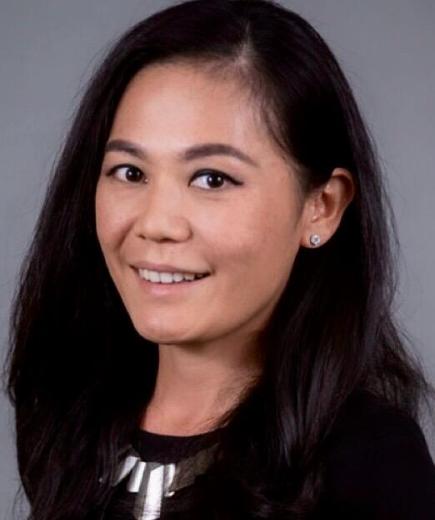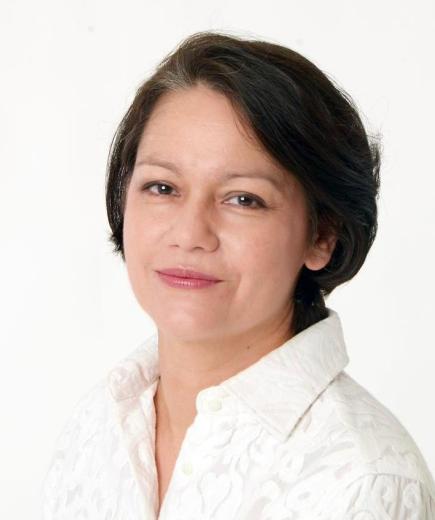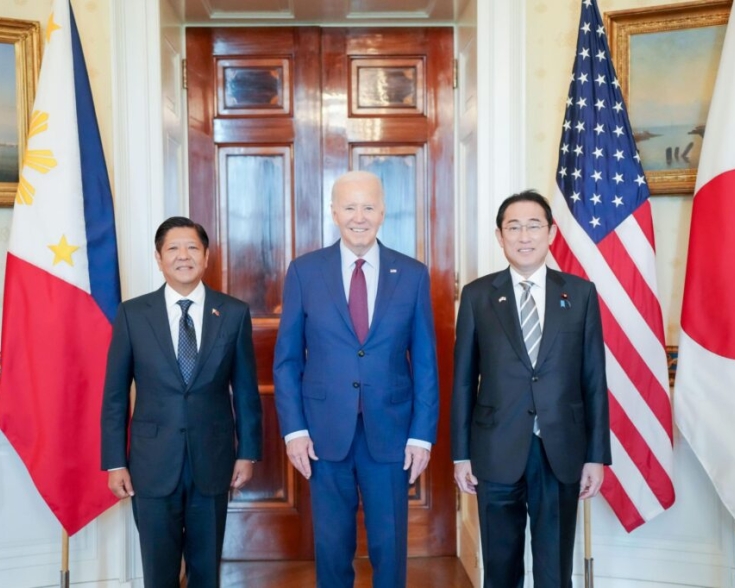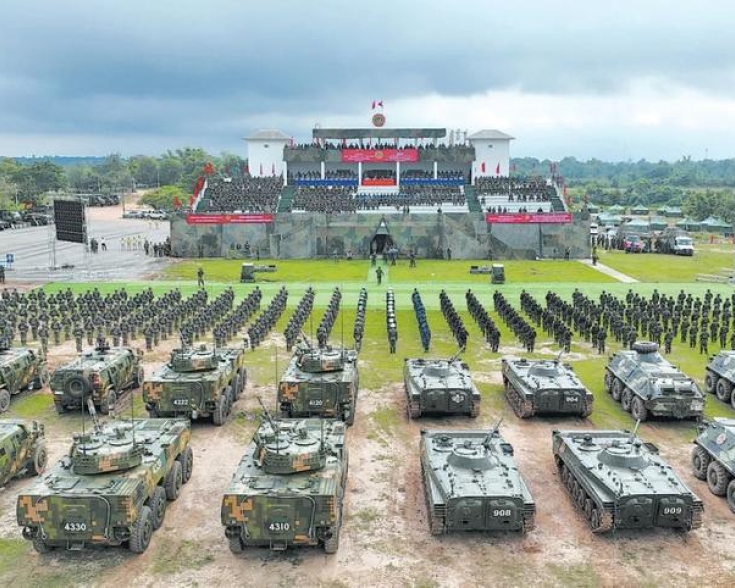Government and Law Reforms During Jokowi’s Last Months on Presidency
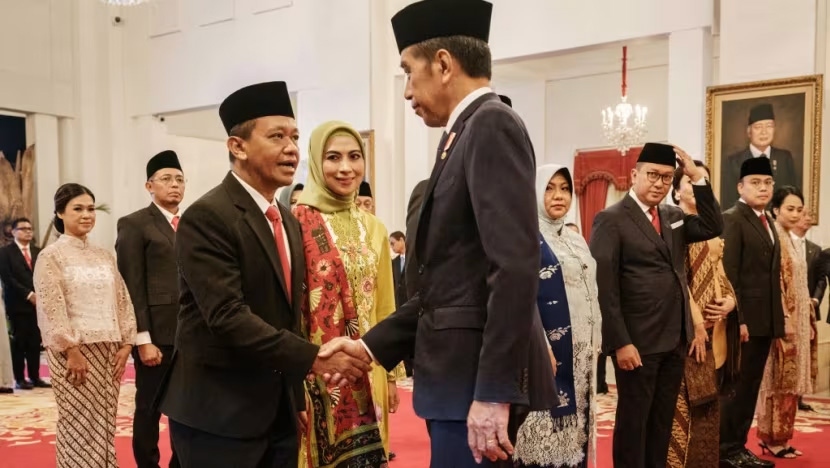
Government Reform through Cabinet Reshuffle
On August 19, President Joko Widodo (Jokowi) reshuffled his Cabinet just two months before his term ends —his 12th reshuffle since 2019. He replaced two ministers linked with opposition Indonesian Democratic Party of Struggle (PDI-P) with figures closely aligned with Jokowi’s inner circle and Prabowo’s camp. This strategic change is aimed to solidifying the new governing coalition.
In this reshuffle, Law and Human Rights Minister Yasonna Laoly was replaced by Supratman Agtas, a member of Prabowo’s Gerindra Party and former Chair of the House of Representative (DPR) legislative body. Energy and Mineral Resources Minister Arifin Tasrif was succeeded by Bahlil Lahadalia, former Investment Minister and Jokowi loyalist who played a key role in Prabowo’s campaign. Shortly after, Bahlil Lahadalia was nominated as Chairman of Golkar Party, ahead of its National Congress set for December 2024, replacing Airlangga Hartanto who unexpectedly resigned on August 11.
Moreover, Rosan Roeslani, Prabowo’s campaign team manager and former Ambassador to the United States was appointed as Investment minister. Meanwhile, Angga Raka Prabowo, another key figure in Prabowo’s inner circle, was appointed as the second Deputy Minister of Communications and Information (KOMINFO).
Law Reform on Regional Election
In addition to the reshuffle, the next day after the Constitutional Court (MK) issued ruling on the threshold for regional head nominations and candidate age limits, DPR Legislative Body amended the Regional Election Law which was finalized in an instant 3-day process.
Firstly, MK Ruling amended the prevailing Regional Election (Pilkada) Law and stipulated that political parties are eligible to put forward candidates with 6.5% - 10% valid vote thresholds which depend on the population size on the permanent voter list (DPT). The ruling is expected to create wider opportunities for regional heads (Governor/Regent/Mayor), while eliminating the dominance of one single coalition KIM+ (Jokowi’s Koalisi Indonesia Maju + additional coalition), with the exception of PDI-P.
Another aspect of the MK ruling is the change of minimum age of regional head candidates—30 for governors and deputies and 25 years old for Regents/Mayors and deputies—to be calculated at the time of registration. This change overruled Supreme Court (MA) Ruling which had calculated the age requirement at the time of inauguration and would have qualified Jokowi’s youngest son, Kaesang Pangarep, who will only turn 30 four months after the registration deadline in August. While Kaesang could have run as Vice Governor, the opportunity fell through when the DPR General Assembly failed to meet quorum following national-wide demonstrations. Kaesang led the public opinion poll for Central Java gubernatorial race with 17.7% of the votes, further proving the strength of the "Jokowi Effect".
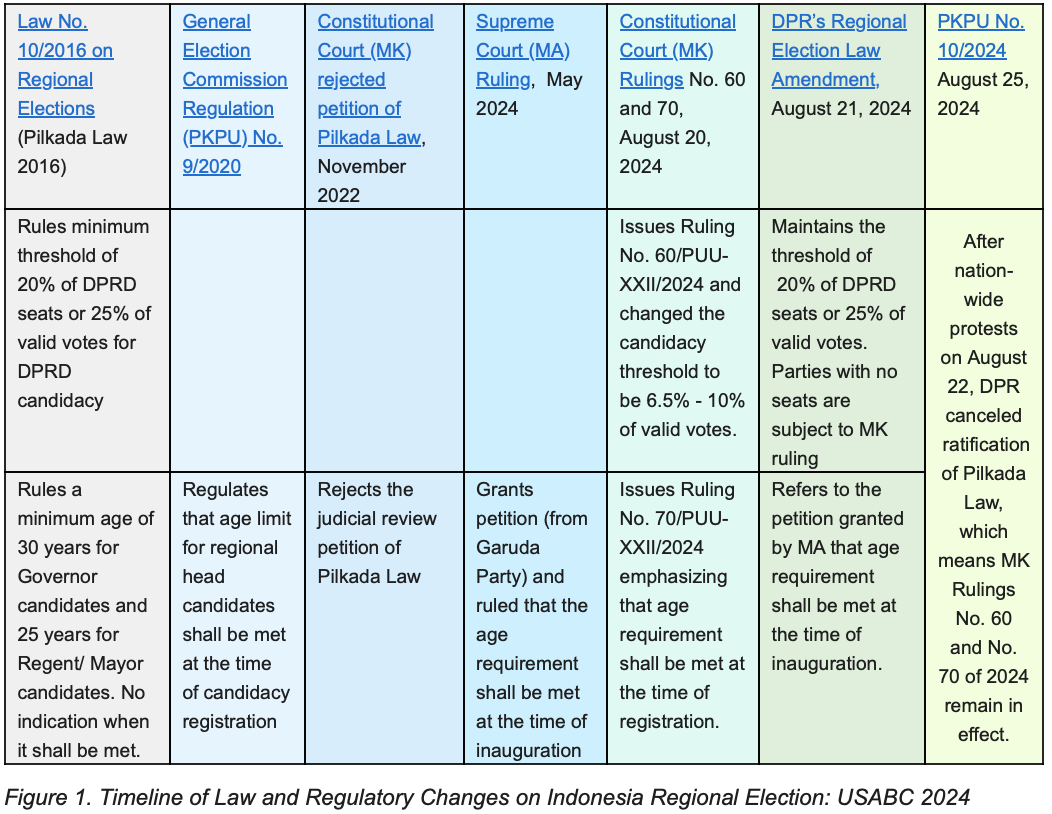
Public Backlash and Scrutiny Post Reforms
The DPR’s attempt to overturn the MK ruling ignited nation-wide demonstration – both offline and online. Massive protests by students, academics, public figures, and activists took place across major cities. Social media and public spaces are flooded with "EMERGENCY WARNING" posts and posters featuring Garuda (the national symbol), reflecting public outrage over the perceived setback to democracy. Following the protests, DPR canceled Pilkada Law ratification, automatically disqualifying Kaesang from the governor candidacy. Not long after, Kaesang faced scrutiny by Anti-Corruption Agency (KPK) over his use of a Gulfstream G650ER private jet on a luxury trip to the U.S.
Given the public's widespread concerns towards the government over the past year, including those related to the vice presidential controversy involving Jokowi's first son, it was inevitable that recent disruptions in Indonesia's governance and law would cause and public outrage. These public efforts to hold the government and policymakers accountable may influence not only the November regional election, but potentially shape the nation's trajectory over the next five years. Moreover, public scrutiny and backlash have highlighted and served as a reminder of the nation's enduring commitment to Indonesian democratic values.
